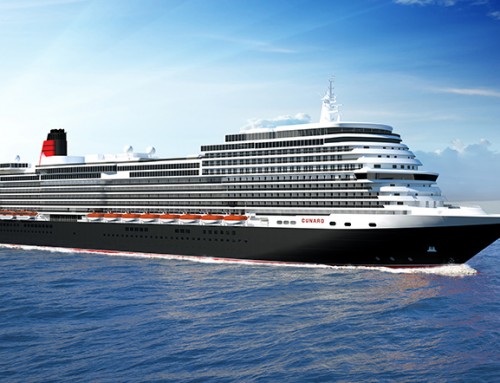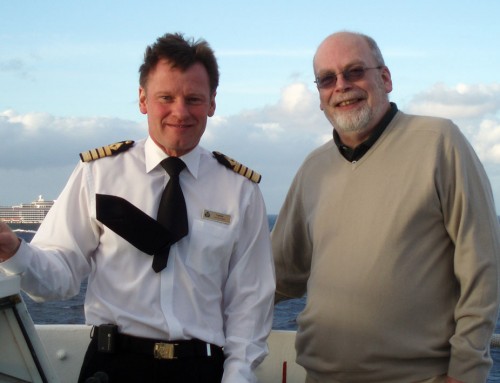Royal Caribbean CEO Richard Fain had plenty to congratulate himself and his team about when the company’s financial results were announced this week.
Despite what he referred to as a storm of bad news “which would threaten any industry,” – including a fire on one of his own ships and power failures affecting some competitors – earnings of $2.40 per share during 2013 were exactly as predicted at the start of the year.
Increasing reliance on growing on-board revenue – up by 7.6 per cent – was one of the positive factors, justifying the millions of dollars spent on the company’s revitalisation programme for its older ships. More than 40 speciality restaurants – each levying an additional charge to diners – have been added across the fleet and on some ships the casinos have been enlarged.
The fact that passengers can book tables online, plus spa appointments and drinks packages, weeks ahead of their holidays got the thumbs up from Michael Batley, CEO of subsidiary company Celebrity Cruises.
Ironically, in a business that puts great efforts into persuading customers to book early, Fain also welcomed a “pleasant surprise” in the amount of late bookings.
For once, cruises to the Caribbean – which account for 46 per cent of the company’s total business – brought disappointing results, partly because of a 13 per cent increase in total capacity for the region.
To balance this up, sales and earnings have improved in Europe and Asia, and the company hopes to boost future business in Latin America by moving the focus of its Spanish brand, Pullmantur.
Adam Goldstein, president of the Royal Caribbean brand, could hardly contain his enthusiasm for the launch of his newest ship, Quantum of the Seas, which will make its debut in Southampton in October before moving to its home base in New York.
There it will compete head to head with Norwegian Breakaway; sister ship Anthem of the Seas, launching in 2015, will replace Independence of the Seas in the UK and will have P&O’s Britannia as a direct competitor.
The Quantum class ships will have first-time-at-sea features such as the North Star observation pod and a sky-diving simulator. Goldstein is impatiently waiting for an opportunity to announce its restaurant facilities and the significant developments in fuel economy which might not excite passengers but which will be music to the ears of the bean counters.
Fielding a succession of questions from Wall Street analysts and investors, the executive team must have been feeling relieved that no-one was showing concern about the fact a cruise on Explorer of the Seas was cancelled this week because of an outbreak of the winter vomiting bug norovirus among passengers and crew.
Then up popped James Hardiman of Longbow Research to ask if it could be the start of another season of bad news.
Thanking him for “saving the best for last,” Goldstein said the outbreak was both “considerable and rare.”
“It’s a serious situation and we feel very badly for the guests that became ill on the ship,” he added. “We are doing lots for them, which includes compensation for the ports that they missed, but we don’t expect that the impact of this event will be significant or meaningful for the company or its results.
“But we are doing everything we can to make the ship as clean as possible.”





Leave A Comment